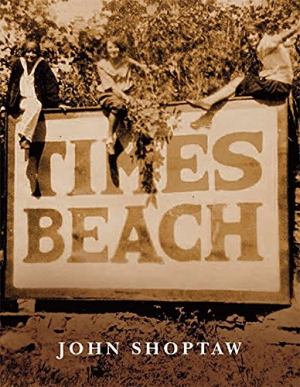Times Beach
To poetize birchbark, floodwaters, crawfish chimneys, the Great Comet of 1811. To write knowingly about trapping swamp rabbits in the hollowed trunks of gum tupelo and the whistling sound of an earthquake in water:
Not unlike the mournful hissing scream a rabbit would make when pulled out by
its hind legs from a gum. At 15¢ a piece—with four good-luck
feet and a couple of stews—it would make, that year’s next morning, a pretty fair deal.
To poetize the Great Squirrel Migration of 1811, when, inexplicably, tens of thousands of the critters left their treesome ways and scurried south from the upper Midwest, running headlong into the unforgiving Ohio River:
Tail aquiver, we poured downtrunk and flooded the forest floor. An ordeal,
to be sure, but also an oddly
moving experience—deer, even bear, fled our fuzzy determination. Navigating by stars
or by each other, it was better together. Needy, distrustful, we were what we could never
rightly recollect. The river changed us unrecognizably, though we go on like nothing happened.
The uncanny combination of experience and skills is what places John Shoptaw at the very summit of nature poets. He anchors his personal experiences in the Bootheel of southeast Missouri as touchstones while he floats the Mississippi watershed through time. An amazing feat.
Reviewed by
Matt Sutherland
Disclosure: This article is not an endorsement, but a review. The publisher of this book provided free copies of the book to have their book reviewed by a professional reviewer. No fee was paid by the publisher for this review. Foreword Reviews only recommends books that we love. Foreword Magazine, Inc. is disclosing this in accordance with the Federal Trade Commission’s 16 CFR, Part 255.

